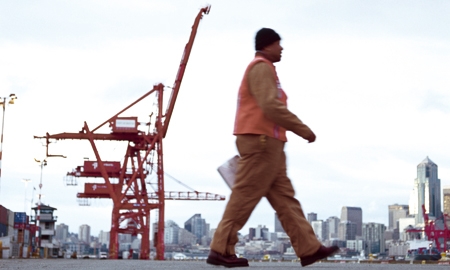The Indigenous Shipowner’s Association of Nigeria (ISAN) wants its country to be in receipt of the know-how of western powers in order to become a major regional hub of the port industry.
“If we could have joint ventures for shipyard construction and shipbuilding yards, and joint ownerships rather than what we have now, it would be good,” says Isaac Jolapamo, President of ISAN.
Thus the leader of this important local association wishes to invite foreign investors to enter the Nigerian shipping market. ISAN, which is responsible for promoting and regulating the business of property and shipping arrangements as well as creating employment opportunities for Nigerian sailors, is aware of the potential of the country, but also the shortcomings that still show the sector in the Nigerian market.
With a coastline of 850km, the maritime industry in Nigeria is an absolute priority in governmental strategy.
Its privileged geographical position means Nigeria has high potential in this sector. It can serve as a hub for central and eastern Africa, allowing big companies to tie up and enjoy the harbour area, and to offer the possibility of local vessels distributing around the area.
However, Nigeria remains a country heavily dependent on imports and therefore requires experience, cooperation and technical assistance in the maritime industry.
“Shipping is standing on the tripod,” says Mr Jolapamo. “You must have a job to do, which we have here. You must have funds and you must have the know-how. We are not well off in two areas, namely foreign finance and technical support. We do not have enough schools that train manpower and we do not have ships. Those are the areas where we believe there is room for collaboration, cooperation and assistance from the western world.”
One of the regulations of the Nigerian maritime industry is The Cabotage Act, which was designed to protect shareholders and local builders. This law creates a situation ideal for the development of partnerships with international companies, with vast experience and resources.
“We know the high standards of their equipment in general. So the area of assistance is enormous,” says Mr Jolapamo, who lists the possibilities in gas projects, construction of oil tankers, ship management, amongst others.
With increasing involvement of local ship owners in Nigeria should come an ever-improving business climate. Therefore, Mr Jolapamo invites German investors to participate in the industry’s projects. “Our country has a lot of potential. We would ask the Germans to come and support. We know of their technological advancements, and we can tap into it for the benefit of both countries.”

0 COMMENTS